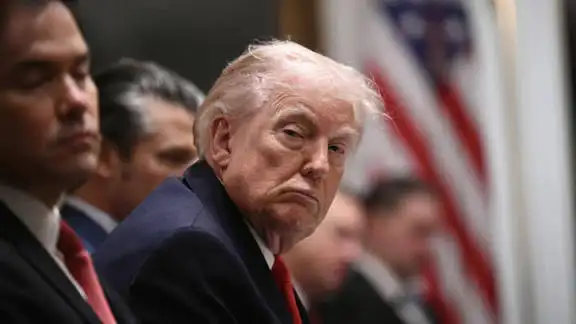In a significant legal development, a federal appeals court has authorized the Trump administration to suspend or terminate billions of dollars in foreign aid previously approved by Congress. This decision marks a pivotal moment in the administration’s efforts to exercise greater control over foreign assistance spending.
On August 13, 2025, the U.S. Court of Appeals for the District of Columbia Circuit ruled in a 2-1 decision that the administration could proceed with its freeze on foreign aid. The court’s majority concluded that the nonprofit organizations challenging the freeze lacked the legal standing to sue, thereby lifting a lower court’s injunction that had mandated the continuation of aid disbursements.
This ruling effectively grants the administration the authority to withhold or redirect funds allocated for global health programs, humanitarian assistance, and other foreign aid initiatives.
The legal battle began earlier this year when President Donald Trump issued an executive order on January 20, 2025, directing the State Department and the U.S. Agency for International Development (USAID) to pause foreign aid spending for 90 days. The order aimed to reevaluate and realign U.S. foreign assistance programs with the administration’s priorities. During this period, the administration suspended existing aid programs, with certain exemptions for emergency food assistance and military aid to specific countries.
Several nonprofit organizations, including the AIDS Vaccine Advocacy Coalition and the Global Health Council, filed lawsuits challenging the freeze, arguing that it violated the separation of powers by infringing upon Congress’s constitutional authority over government spending. In response, U.S. District Judge Amir Ali issued a temporary restraining order in February, later expanded into a preliminary injunction in March, requiring the administration to release the appropriated funds. The administration appealed this decision, leading to the recent ruling by the appeals court.
The court’s majority opinion, authored by Circuit Judge Karen Henderson, emphasized that the plaintiffs did not meet the legal requirements for a preliminary injunction, as they lacked a valid cause of action to press their claims. Judge Florence Pan, the dissenting judge, argued that the decision undermines the constitutional separation of powers by allowing the executive branch to bypass congressional spending authority.
This ruling has significant implications for U.S. foreign policy and international aid programs. Critics warn that the suspension of foreign aid could exacerbate humanitarian crises worldwide, particularly in regions dependent on U.S. assistance for health, education, and development initiatives. Supporters of the administration’s decision argue that it is a necessary step to ensure that foreign aid aligns with American interests and values.
The administration has indicated plans to review and potentially restructure foreign aid programs to better serve U.S. strategic objectives. However, the legal challenges are expected to continue, with potential appeals to the full D.C. Circuit Court and, possibly, the Supreme Court. The outcome of these proceedings will likely shape the future of U.S. foreign assistance and its role in global affairs.












Leave a comment